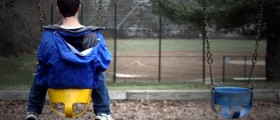
Sleeping and Memory
We know that sleeping is very importantfor our proper functioning. Moreover, lack of sleep or excessivesleep deprivation can have a catastrophic effect upon our health.This is why many cultures, like Spain, for example, nurture theirdaily sleeping habits, through their “siestas”.
However, recent studies have shown thatsleeping during the day helps us consolidate our long term memorybetter. Namely, certain tests were performed where two groups ofpeople were supposed to learn how to perform a certain sequence offinger movements. Then, one group was left awake during the day andthe other was granted several sleeping hours. At the end of the day,those who were sleeping had better performance of the previouslylearned sequence, meaning that they had memorized it better. Thisleads us to believe that there is a significant connection betweensleeping and memorizing things. This is even more so because, oncethe sleep deprived group from the research was capable of sleepingduring the night, the following day it showed much better results.
Mind, Memory, Sleeping
Since our long term memory consists ofdifferent types of information, we remember things differently too.We have two types of long term memory, which are to stay with us fora longer period of time, or even permanently. One type of this memoryis the “what” memory, where we remember things or experiencesfrom our past which are facts we have seen, read or heard. The othertype is “how to” memory which is memory which taught us how tospeak a certain language, ride a bicycle etc.
Now, the previously mentioned testshowed how the group which was not sleeping during the day, has notbeen able to remember different sequences of information. The secondset of instructions which the group would remember would make themforget certain parts of the first. This was not the case with thegroup which was sleeping. Therefore, sleep definitely betters yourlong term memory consolidation process.
However, there were cases where certaingroups of people were unable to remember the second set ofinstructions even though they had a 90 minute nap between theinstructions. This leads us to a conclusion that there is still muchto be learned from this experience. We still know little about ourbrain and our whole process of memorizing. Nevertheless, these testshold quite a promise. So, we can say that humanity is getting closerto understanding itself.

















Your thoughts on this
Loading...